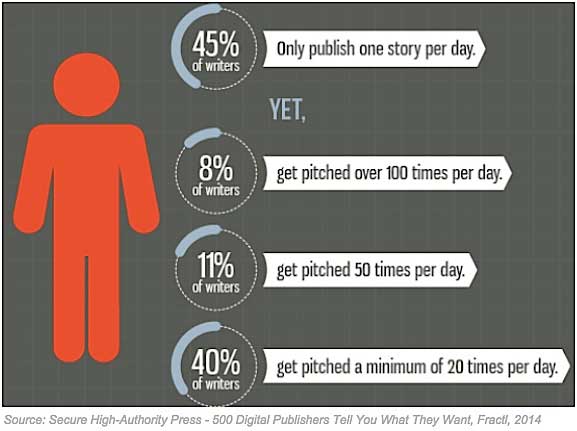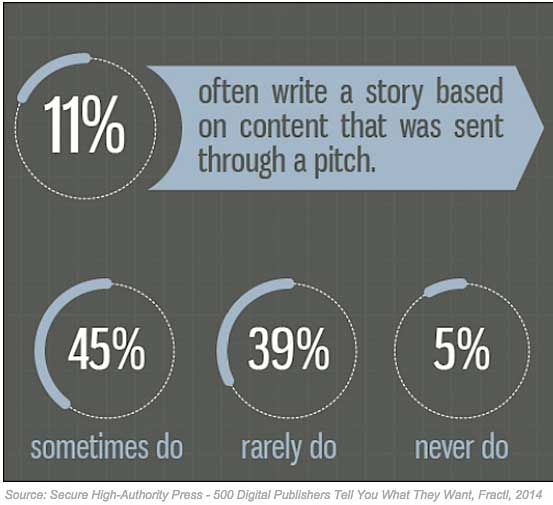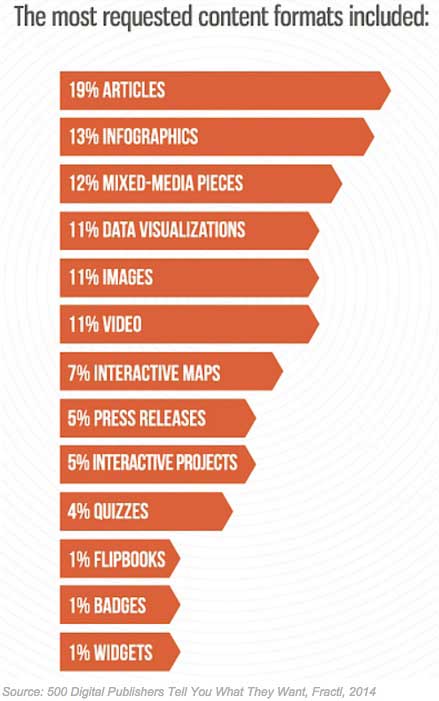How long should should content pitches to media outlets be? Should they include fully formed assets or, instead, opportunities to collaborate? Do publishers value exclusive research? What are the biggest mistakes people make when pitching?
Fractl recently set out to answer such questions by surveying 500 writers, editors, and publishers on what they look for in pitches. Respondents came from a wide range of digital publications, including those that cover general news (such as CNN.com, Reuters.com, USAToday.com), business and technology (Forbes, Mashable, Business Insider), and specific industries (Adweek, IT World, InfoComm).
Below, key findings from the report.
Pitch Format and Timing
- 64% of respondents say it is important to establish some sort of personal connection before pitching.
- 81% prefer being pitched via email; 9% via social media; 5% by phone; 5% via a contact form.
- 85% say they open a pitch email based on its subject line.
- 69% prefer to be pitched in the morning; 22% in the afternoon; 9% in the evening.
- 45% prefer pitches to be fewer than 100 words, and 43% prefer pitches to be fewer than 200 words; only 12% like pitches longer than 300 words.
Capacity and Volume
- 45% of the writers surveyed write only one story per day, on average.
- 40% of respondents receive a minimum of 100 pitches per week, on average.

Collaboration and Use of Pitches
- Some 70% of respondents say they prefer to be pitched ideas they can collaborate on rather than simply receiving finished assets.
- 56% of respondents say they often or sometimes cover a story based on pitches; 39% say they rarely write stories based on pitches; 5% say they never do.

Content Types and Formats
- Survey respondents were asked to select which type of pitch interests them most: exclusive research, breaking news, emotional stories, or "other"; 39% picked exclusive research, 27% breaking news, 15% emotional stories, and 19% other.
- 19% of respondents are most interested in receiving data in an article format; 13% prefer infographics; 12% mixed media; and 11% each in data visualizations, images, and videos.

Mistakes to Avoid
- 85% of respondents say it's likely they would delete a pitch based on spelling and grammar errors, regardless of the content's quality.
- Other mistakes cited by respondents include using too much "marketing speak" and using all caps.
About the research: The report was based on data from a survey of 500 writers, editors, and publishers for digital publications.




